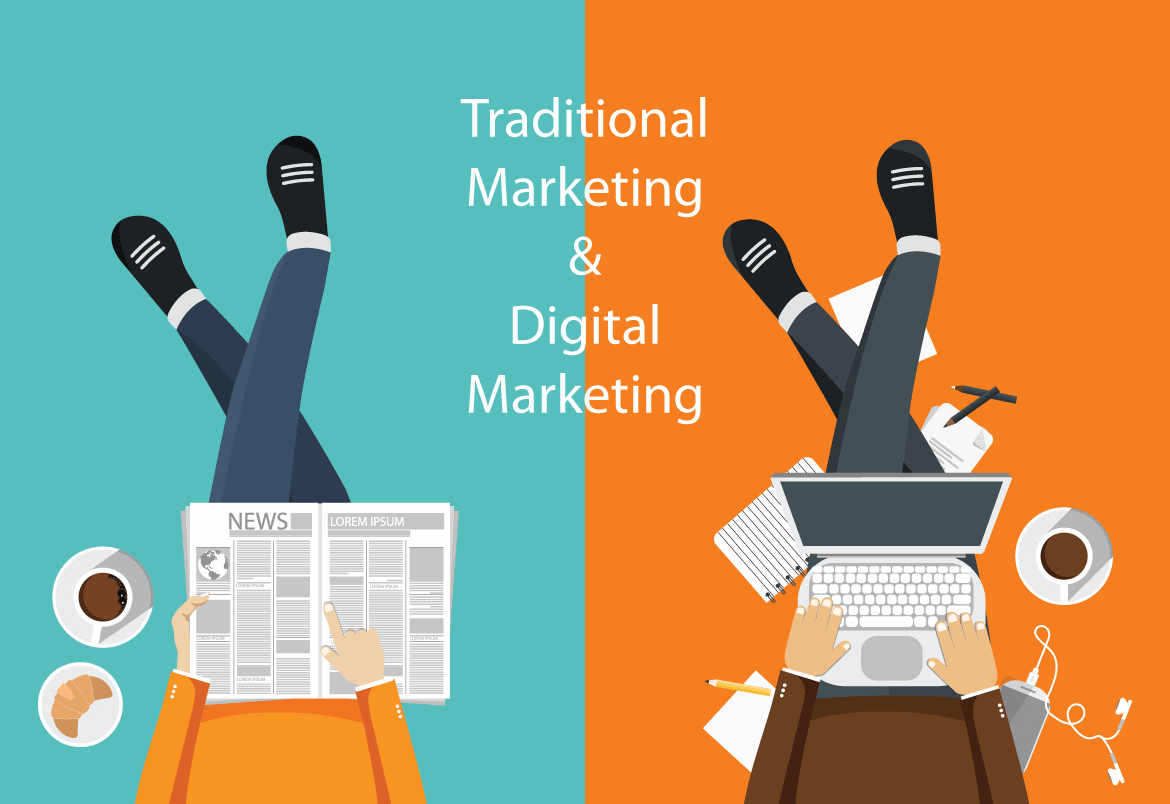Lead magnets have proved to be effective techniques to increase leads and grow subscribers. While largely used in the field of marketing, it is also something that entrepreneurs can put into practice to attract more customers and increase their online presence.
This holds true for legal practices, too, where content has increasingly taken center stage in developing credibility, increasing the flow of traffic to one’s website, and driving a greater number of leads.
However, law firms face unique challenges due to the nature of their practice area and restrictions on soliciting prospective clients.
With these in mind, here are some of the creative-and effective-lead magnet ideas we are going to introduce that will specifically help law firms enhance their lists and bring in more leads.

Educational Ebooks
Many clients are confused about the legal process and are going to Google searching for resources, information, services, and advice that will help them with their cases.
What better way is there to demonstrate expertise and win new clients than to give away some educational content via ebooks?
Generally long-form guides or reports discussing topics in-depth, eBooks for law firms can provide introductory insight for non-experts, case studies, and any type of step-by-step guides on questions of the law. Not a designer? No problem! There are several free options, and one of the most popular is Canva, to create eBooks with.
Here’s how you can create an eBook with Canva:
- Choose a Template: Canva offers several ebook templates to suit just about any style and theme you could imagine. Have a look through the pages that are already on the template and choose whether you would like to include, edit, or delete them.
- Customize the design: Give your eBook a personal touch by using stock photos, illustrations, icons, and graphics from Canva’s library or importing your own. Experiment with colors, backgrounds, and font types, adding photo effects to make it even more eye-catching.
- Add content: Complete your design with the content of your eBook. Add a descriptive title, link to supporting materials where necessary, attach some nice images, and add “bonus tips” to make the eBook more engaging.
- Publish and share: Once your ebook is polished, save it as a download and export as a JPEG or a PNG. From there, take it to your site and drop the file behind the subscription wall to control who can access.
Specialized Webinars and Interviews
Live or pre-recorded webinars are an excellent channel of value proposition for the prospects. The interactive nature of the live webinar, coupled with the ability to review informative videos again and again, makes them quite appealing.
Webinars on specific legal issues, interviews, or question-answer sessions will help walk your audience through the many facets of the legal process. For example, you can go into detail on divorce and how to initiate the process, how to begin the process of writing a will, and what the crucial real estate law matters are.
Here are possible titles for your webinars:
- How It Works: Knowing Your Rights – [Legal Topic] Explained.
- How It Works: How to Handle [Legal Issue] – Here’s How You Do It, Step by Step.
- How It Works: Legal Basics – How to Safeguard Your [Assets/Business/Family].
- How to Avoid Legal Pitfalls in [Scenario/Situation].
- [Legal Topic]: A Lawyer’s Tips for Success.
- Legal Questions Answered: [Topic] Q&A Session.
- What Every [Entrepreneur/Parent/Homeowner] Should Know About [Legal Topic].
- What Every [Person/Business Owner] Should Know About [Legal Topic].
Once you have decided on the subject your webinar or interview will cover, publish the session through the use of social media, your website, or email. Potential clients may then sign up for the session with their contact information, demonstrating an interest in the subject matter and allowing you to follow up after the session to maybe cultivate them as new clients.
Free Legal Forms
These are the preformatted structures developed to make the process easier for the users in creating, editing, and maintaining their documents. They are useful at the time of preparation of different types of documents such as wills, lease contracts, agreements, confidentiality or non-disclosure agreements (NDA), parenting plan, and many others.
As an attorney, you have the relevant knowledge that would facilitate your capability to assist your client in making solid and particular legal documents.
This is important, as with some limitations, it is highly advisable that the clients have their documents checked by an attorney, but providing the templates gives a great starting point. Once the user downloads the template, they can give their email address, and your firm can follow up and offer them help in completing or reviewing the document.
Other ideas of legal templates that you could research:
- Power of Attorney
- Advanced Healthcare Directives
- Partnership Agreement
- Service Agreement
- Release or Waiver Form
- Loan Agreement
- Promissory Notes
- Employment Contracts
- Business Formation Documents
- Demand Letters
- Cease and Desist Letters
- Prenuptial Agreements
- Intellectual Property Assignments
- Settlement Agreements
- Complaints or Petitions
Actionable Worksheets
Like checklists, worksheets are interactive and engaging resources that assist potential clients in understanding the process themselves, evaluate their case, prepare for a meeting with a lawyer, and even to estimate how much lawyers will charge.
The worksheets prove particularly helpful in the case of a new client who perhaps may not have put all of their information and documents in order. By providing these sheets, one gives them an option to become more informed, thereby becoming a better-prepared client for one’s services.
Take it to the next level and offer to give them personalized feedback or consultation in return for their completion of the worksheets. This would give you a direct opportunity to engage with them.
Downloadable Checklists
Break down complex legal topics and processes into easily understandable checklists. In this regard, checklists become handy tools for prospective clients in order to help them plan activities, prepare for litigation, and keep track of important information related to legal matters.
A checklist is a very strategic choice to make for a lead magnet; it’s very high value. For example, let’s say that you are a will and probate attorney. You can have some checklists named something like “X-Step Checklist for Estate Planning,” developed to incorporate relevant resources, activities, and graphics that will take someone through a step-by-step process on some aspect of estate planning.
Sample steps on this kind of checklist may include:
- Download our free Estate Plan Template.
- Make one list of family members and beneficiaries.
- Listed below are some of the basic components involved in estate planning, in a generalized sense.
- Inventory assets-real estates, bank accounts, and investments.
- Select designation of power of attorney.
- Retention of services of will and probate attorney in drafting the last will and testament.
- Listing liabilities-debts owed, mortgages taken out, and loans received.
- Details regarding insurance policies taken out: which one has taken life, health, and property.
- Call for periodic estate plan reviews and updates.
These can be provided as downloadable content in exchange for contact information to aid the attorney in building a database of potential clients. One of the major steps in the checklist would be to instruct individuals to call an attorney-that is, you-for more detailed help and thus include your contact information directly.
Lists of Tools and Resources
If you know how to create web applications – or can hire someone to do it for you, a digital tool is a great way to engage users and capture leads.
One of the easiest ways is resource listing, a really easy version of digital tool. Develop and publish a list of resources that people may find useful, and publish it on your website. This could be document templates, links to government websites, case studies, and videos that are helpful.
Online tools could take other forms, such as:
- An interactive “check-up” system in which users can check their needs legally.
- A cost calculator that would estimate costs for certain procedures-starting a business, filing for divorce, or hiring an attorney, based on the input of the user.
- An e-document creator to generate very simple legal documents, such as non-disclosure agreements or letters of intent.
- Visual timeline “maps” showing how different legal processes generally unfold.
- Case studies where the user can enter variables and see what legal outcomes may happen in each of their situations.
You can be more creative, depending on what best fits your target audience’s needs. Your objective is generally to gather user details so you can follow them up and convert them into leads.
Video Tutorials
Unlike webinars, video tutorials are usually pre-recorded videos where you take users through a process from start to finish. Recordings are detailed steps and examples, not interviews or quick sound bites.
Identify when clients might need to file a small claims case or trademark their logo. Produce an outline for your video with steps you’d like them to take.
Next, record your video and edit the content, then host the video-likely as a private video on YouTube that can be shared with subscribers via email, or behind an opt-in wall on your website.
Case Studies
Probably the most common lead magnet in the legal profession is case studies. This is because clients are usually looking for examples of how one has handled cases and won results for clients.
Case studies help in establishing trust and convincing your target audience that you are the right attorney to handle their legal concerns. In your case study, state the problem of the client in the beginning, present the management of the case, then describe how it turned out, and, if possible, your client’s review to your services.
Highlight the fact that it was in the best interest for the clients to work with an attorney to obtain the guidance and support necessary to get them through difficult and stressful situations. You could put these case studies behind an opt-in wall, inviting interest via social media, for example-the case study is given in exchange for an email address.
Those who are interested in such stories can request further information or even a consultation, thus becoming highly qualified leads.
Interactive Quizzes
Quizzes traditionally focus on the user answering questions to receive some type of “score.” However, in legal applications, the quiz can be a medium by which a user can analyze their situation and receive knowledge of what to do next, or what things to consider moving forward from someone they trust legally.
These can be automated responses based on that criteria, or- even better-your legal team creates them and the system e-mails them to the user. The end result for the user is a personalized assessment with suggestions and/or warnings about their case, which may be the very reason a new lead is generated for your practice.
This is because of the limitations in providing legal advice to individuals who are not yet clients. In particular, your “answers” may be more accurately generalized advice with a recommendation to seek out legal advice for substantive detail regarding their matter.
Mini-Courses
Courses, like tutorials, can be used to educate an individual on their rights, the legal process, or even how to retain an attorney.
A course doesn’t need to be purely in the video format; it can be an email series, a downloadable PDF, or even several worksheets. Tools such as Teachable and Kajabi make hosting your course materials a breeze, make sign-up simple, and communicate afterwards with subscribers even easier.
With your course, you can insert mini-course videos, assign homework, link to additional resources, and more.
Keep in mind that course creation is more dense than creating a single tutorial, so we recommend that you develop a “mini” course-something that gives good value and interests people in your service.
Some examples to consider regarding possible course topics:
- Legal Essentials: X Steps to Master Your Rights
- Contract Navigation: What to Know Before You Sign
- The Basics of Estate Planning: How to Plan Your Legacy.
- Small Business Law: How to Protect Your Company
- Protect Your Business the Right Way
- IP 101-How to Legally Protect Your Ideas
- Mini-course: How to Buy and Sell Property-Tips from a Real Estate Attorney
- Employment Law for the Employee-Know Your Rights at Work
Facebook Groups
People look for information somewhere, whether it’s on Google, other social media sites, or even in Facebook Groups. If you have great knowledge to give, then making a Facebook Group might be one way to get more leads.
When you create a Facebook Group, you have the option of making new joining members answer certain questions. For example, “Why are you interested in [legal topic]? “Would you like to provide your email for more information?” or “What other topics are you interested in?” Not only would this be the start of a list of potential contacts, but also provide some ideas for what you might post in your group.
For example, if one is a property lawyer, a Facebook Group could be named “Real Estate Watch”; if a business lawyer, you may open “Small Business Tips”; if you are a contract lawyer, you might open “Contracts 101”.
Though personalized legal advice can’t be given within the group, at least you can refer people in the right direction when they ask about difficult legal issues.
Trend Reports
Trends reports offer insight, analysis, and perspective on a current legal topic or storytelling that is attracting attention. If you have a hot topic within your sector at the moment that is capturing public consciousness, then producing a trends report may be a very attractive proposition.
Consider, for instance, you are a real estate lawyer. A hot trending topic might be taken from the direction of the real estate market itself: is it up or down? You can compile a “market watch” report that summarizes your observations of market trends down to the relevant information buyers and sellers need to understand in the area of real estate law.
Convince customers to download your specialized report or newsletter by opting into your report or newsletter. This way, you are able to keep them updated regarding upcoming special events, promotions, blog postings in your website, or an upcoming webinars. In this method, you are building your list with an engaged audience of prospective leads.
Creative Ideas of Lead Magnets for Law Firms
These are just a few of the options for lead generation; the possibilities are huge! Since you know your audience best, you may have some special insight into how to reach them and what exactly would interest them.
Not only that, but feel free to think out of the box with some of your own lead magnet ideas. These magnets improve engagement, build a wider audience, and entice new leads. Marketing for a law firm doesn’t have to be boring.
Unleash the imagination, and this will open up new ways of reaching out to your audience and building enthusiasm for working with your firm.
Would you like to read more about “Innovative Lead Magnet Concepts for Law Firms” related articles? If so, we invite you to take a look at our other tech topics before you leave!
![]()











